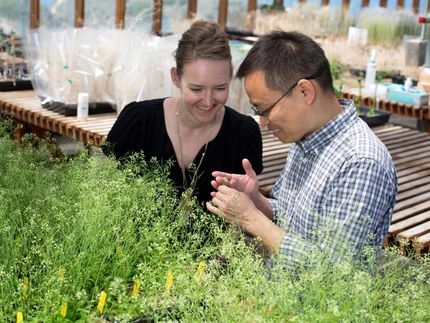Epigenomics Optimizes Workflow for Testing its Proprietary Biomarkers for the Early Detection of Cancer in Blood Plasma
Advertisement
Epigenomics AG presented research geared at developing a generic workflow for testing its proprietary DNA methylation biomarkers for the early detection of various types of cancer in blood plasma at the Cambridge Healthtech Institute's G.O.T. Summit in Boston, MA, U.S.A..
Theo deVos Ph.D., Epigenomics' Vice President Development Diagnostics, presented data on workflow optimization resulting from the largest DNA methylation biomarker studies ever done in blood plasma including several hundred colorectal cancer patients and control individuals over the past years. The presentation titled "Optimizing the detection of DNA-based biomarkers in blood plasma" systematically addressed workflow requirements for the reliable and sensitive detection of tumor-derived DNA in the blood stream with DNA methylation biomarkers using Epigenomics' proprietary colorectal cancer biomarker Septin 9 as an example. Dr. deVos presented data demonstrating that by using Epigenomics' proprietary MethylLight and HM technologies to measure methylated Septin 9, the DNA equivalent of only about two tumor cells can be detected in a sample . Further data showed that Epigenomics had successfully standardized the sampling procedure for blood plasma and had optimized the recovery of free floating DNA from the plasma samples and its preparation for methylation analysis by proprietary bisulfite treatment protocols.
Epigenomics used this research grade assay procedure in late 2006 to demonstrate that the presence of methylated Septin 9 DNA in blood plasma reliably indicated the presence of tumors of all stages in colorectal cancer patients with a high specifity and sensitivity.
"We believe that the insight we gained into the critical workflow determinants for the early detection of colorectal cancer allows us to develop a generic assay procedure for DNA methylation biomarkers in body fluids that also is applicable to other cancer indications" commented Christian Piepenbrock, COO of Epigenomics. "This notion is also supported by the extraordinary results we obtained last year in our prostate cancer screening program."
Based on the findings gathered in these studies and outlined by Dr. deVos, Epigenomics is now optimizing generic assay procedure with respect to costs, time, and simplicity for clinical routine use.





















































